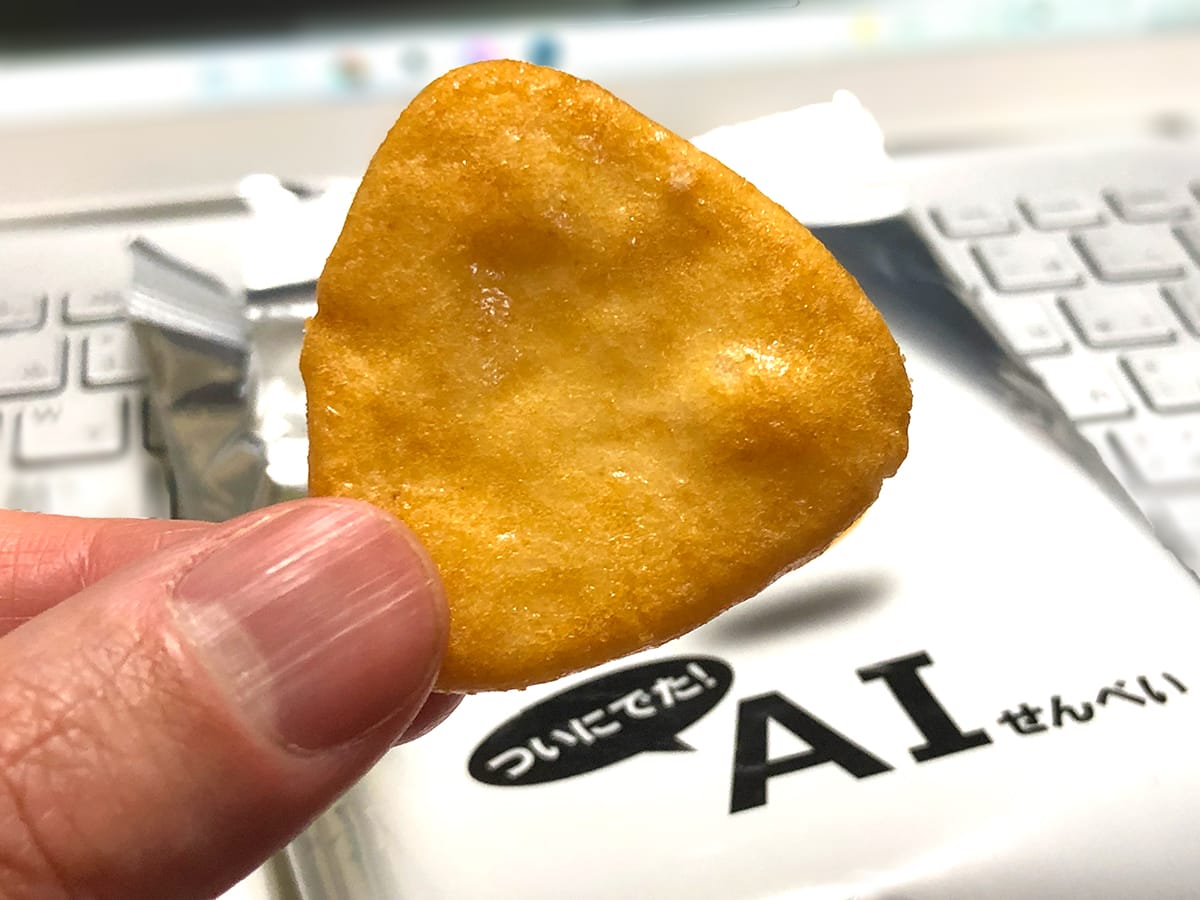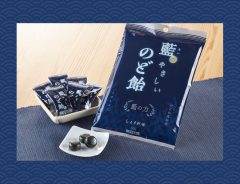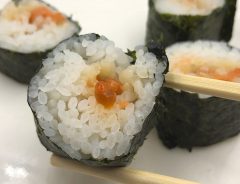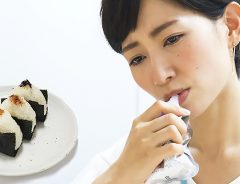
Photo by grape Japan
AI Senbei: We tried an onigiri rice cracker developed with artificial intelligence
- Tags:
- AI / Japanese convenience stores / Lawson / Masuya Co. Inc. / Onigiri / Onigiri Senbei / rice ball / rice cracker / Senbei / Snack
Related Article
-

Japan’s Top Five Virtual Humans
-

“Which convenience store’s tuna mayo rice balls are best?”: Cooking YouTuber gives her opinion
-

Throat drops feature Japanese “ai” indigo, traditionally used as blue dye and healthy tea
-

Some of the tasty sushi rolls you’ll find in Japanese convenience stores [Review]
-

Japan Invents Drinkable Onigiri Rice Balls To Go
-

“Gensōkyō System” adds special effects to cosplay shoots via projection mapping & AI


AI Senbei
Japanese snack maker 株式会社マスヤ Masuya Inc., known for their hit product おにぎりせんべい onigiri senbei (lit. "rice ball rice cracker"), triangular rice crackers shaped like little onigiri rice balls, has made a bold departure from their traditional formula by launching a new product using artificial intelligence in the development process, called "AI Senbei."
Masuya worked with AI solutions company Data Artist, Inc., as well as TV Tokyo's business development variety show 今日からやる会議 kyō kara yaru kaigi (lit. "let's start today" conference) to develop the snack, under the concept that the show's original "AI Vtuber" タミ子 Tamiko derived the result.
Using AI to create the "ultimate addictive taste"
Data Artist's AI analyzed the ingredients of 82,000 recipes online containing with the word やみつき, meaning "addictive taste," in them (The word is a common descriptor in Japanese recipe titles of late.) As a result, it found the optimal combination of ingredients that makes dishes "addictive" 99.8% of the time. Using this data, Masuya's research division incorporated this combination into the flavor profile of the final product.
Trying out AI Senbei
We wanted to know what happens when a rice cracker is created with AI, so when it went on sale on March 22nd, we headed for our local Lawson convenience store, which exclusively carries the snack, and bought a pack for ourselves.
Here's what it looks like:
Photo by grape Japan
Since it's such a high-tech snack—using AI, no less—we thought we'd also go high-tech and make a 3D model with the recently released WIDAR app, which lets you create 3D models easily even if your smartphone doesn't have LIDAR. Sorry we couldn't scan the inside to let you take a virtual tour of the bag...
They look not too different than Masuya's standard Onigiri Senbei, minus the strips of nori seaweed on the surface.
Photo by grape Japan
Taste test
So, after all the hype, how does an AI onigiri rice cracker actually taste like?
The texture was satisfyingly crunchy, not too hard and not too soft, very well balanced. As for the taste, perhaps we were biased by knowing that it was determined by AI, but it was at first difficult for us to figure out what was going on. We initially recognized the familiar flavor profile of soy sauce, and imagined there might be miso but there were clearly other elements. After savoring a few more crackers, we realized they tasted somewhat like yakitori as well, and finally, perhaps a hint of ginger.
Let's take a look at the ingredients on the back of the package...
Photo by grape Japan
Ingredients: Japanese uruchimai rice (provenance: USA, Japan), vegetable oil, sugar, tsuyu sauce, soy sauce, liquid fermented seasoning, powdered chicken broth, dextrin (a natural fiber), garlic, salt, powdered cabbage extract, processed starch, seasoning (amino acids, etc.), emulsifier, antioxidant (Vitamin E), flavoring, coloring (caramel coloring, paprika coloring), acidulant.
It looks like we got some of it right...
Did the AI succeed?
So then, would we call them addictive? Did the AI succeed?
Let's just say that we'd probably buy these again. We thought they were quite tasty and polished up the whole bag before we knew it.
And considering that they're only 128 JPY plus tax, they're very affordable too.
You can pick up your own AI Senbei at Lawson convenience stores nationwide in Japan (some stores excluded).
There's also a QR code on the back of the package which leads to a survey, if you'd like to help Masuya develop more AI products in the future.
Product information